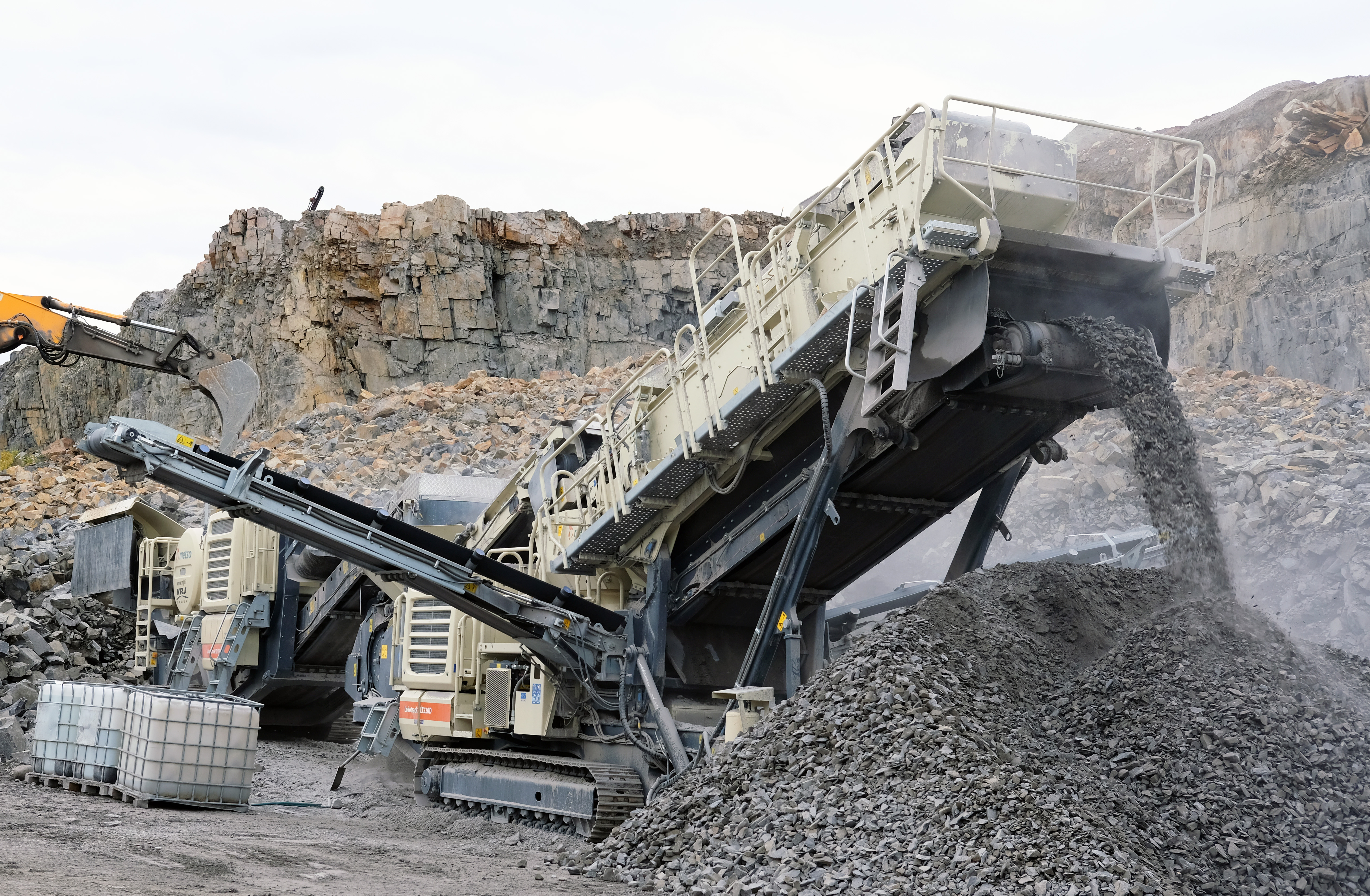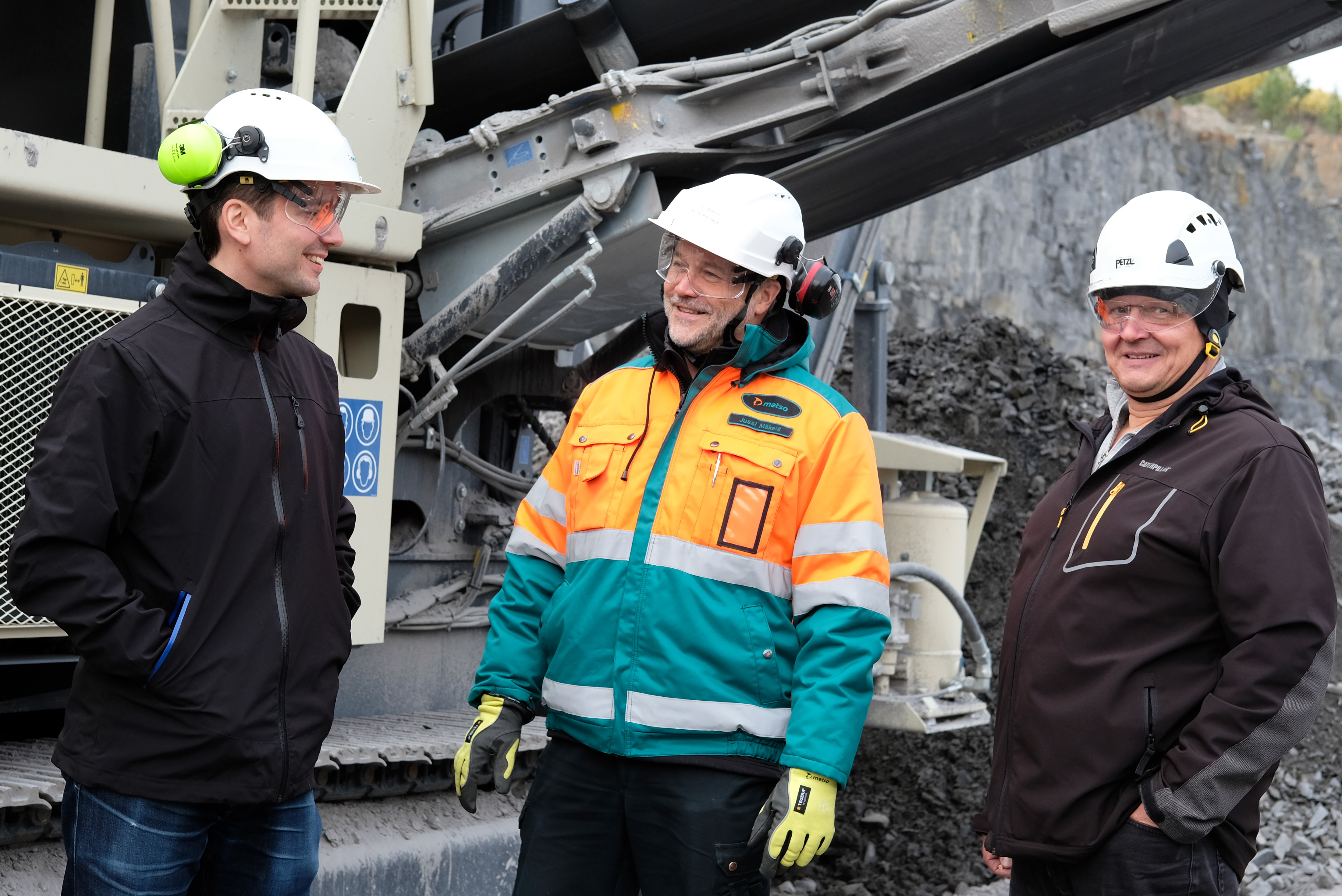Large recycling center in Hakoselkä
VRJ Group has a large recycling center in Haukipudas, in connection with the company’s Hakoselkä quarry. The center offers crushing, an asphalt mixing plant, and neat areas for the processing of a variety of soil materials, the chipping of wood, and the composting of soil.
The company annually manufactures and recycles a little less than half a million cubic meters of masses in the area. For example, the asphalt mixing plant’s production volume is 10,000–30,000 metric tons per year, depending on the demand.
The composting plant makes some 70,000 cubic meters of topsoil per year. Approximately 300,000 metric tons of crushed stone of different types is made at Hakoselkä. The VRJ area covers some 40 hectares.
1,500–2,500 metric tons of crushed stone per day
VRJ Group started crushing in 2005. Five years later, the company purchased from Metso a C100 jaw element for primary crushing. A new Lokotrack LT106 jaw crusher was acquired in early 2017 and paired with an LT220D gyratory crusher in the spring of this year. Now crushing takes place in two shifts at the Hakoselkä quarry.
Demand is so lively that VJR’s trucks most often carry crushed material, which does not stay at the quarry for long. Half of the production volume goes to the company’s own needs and half is sold out.
A subcontractor handles drilling and blasting at Hakoselkä. After that, the feed of 300–600 mm goes through the LT106’s jaw and then through the LT220D’s spindle. “We manufacture all the grades we and our customers need with the Lokotracks: from zero-based end products to cut gravel, road-sanding gravel, asphalt grades, and rock dust,” explains Kari Jurvelin, who is in charge of crushing in VRJ Group.
“Depending on the grade, the daily production volume is 1,500–1,600 metric tons. As the Lokotracks consume 20–35 liters of fuel per hour, we do not need to refuel them in the middle of the day. We bind the dust by spraying water,” Jurvelin says.
Functional maintenance and spare part services
“A Finnish manufacturer, the fact that the machines and maintenance come from Tampere, is important for us. We have always received spare parts and maintenance services when we have needed them,” Kari Jurvelin says.
In addition to daily checks, there is a two-hour maintenance outage every Friday. “We call Metso if we need technical advice or special maintenance,” Kari Jurvelin adds.
In future, VRJ Group will be able to monitor the key functions of its double-stage Lokotrack plant from any computer via satellite with Metso Metrics. The system will also remind them of upcoming maintenance.

